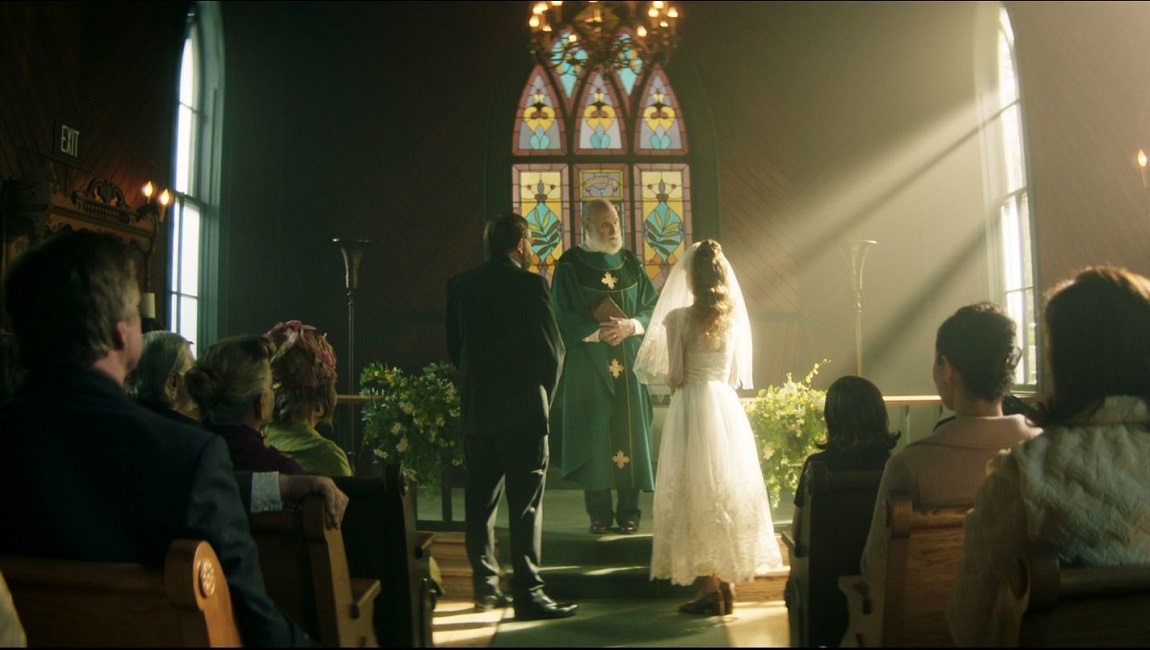It takes a few minutes to realize that there hasn’t been a single edit in Hugo Ruiz’s new film, One Night With Adela, and then a few more to understand that there probably isn’t going to be an edit, ever. Yes, Adela is one of those single-take films, a 100-minute long shot that follows the titular Adela (Laura Galán) in as she drives, walks, and otherwise stalks about a largely deserted urban area seething with rage. The film’s opening minutes find Adela the victim of vicious catcalling, robbery, and attempted sexual assault, so it’s not difficult to surmise the reasons for her resentment at the world. But the remainder of the film gradually reveals the much deeper seeds of her anger, with the film’s real-time depiction ostensibly in support of developing our understanding. The merits, or lack thereof, of this type of gimmick film have long and passionately been debated; and there’s no doubt the technique has gained in popularity as lightweight, hi-def digital cameras have gotten better and cheaper. Ruiz’s film reliably evinces both the pros and cons of this filmmaking approach, vacillating between a genuine narrative intensity and an unfortunate tendency toward long lulls. That it winds up closer on the spectrum to the more organically rendered The Body Remembers When the World Broke Open than the elephantine Birdman or 1917 is at least a point in its favor.
But back to the beginning: Adela is ending her night shift as a street sweeper. She’s just visited an ATM and is making her way back to her truck when a car of aggressive men drive by and begin harassing her. She ignores them, but eventually one of the men exits the car and starts walking alongside her. He pulls her into an alley, gropes her, and discovers a wad of cash on her person. He stops assaulting her and instead decides to take the money and be on his way. Adela runs after him and strangles him to death, leaving the body under some debris and continuing on her way to her dealer’s house. Once she arrives, she’s understandably agitated, chain-smoking furiously while she does some lines and buys a joint for later. Adela leaves the dealer’s house and makes her way back to her truck, where she calls in to a late-night radio talk show. It’s one of those self-help advice shows, where people call in with their problems and the host (voiced by Gemma Nierga) offers vague platitudes and condolences. Adela informs Gemma that she is planning to murder someone, and that there is nothing anyone can do to stop her. Of course, we’ve already seen her kill someone, and even though that act was arguably in self-defense, Adela’s rage suggests that her premeditated plan was going to transpire whether or not the initial assault ever happened. It’s hard to know for sure, which is obviously the design Ruiz intends.
The film is ultimately a character study of an unknowable person, which both fascinates and frustrates. The single-take ploy also causes some dramatic issues in the early goings; Adela’s walks to and from her truck are captured in real-time, at first bringing to mind the focused intensity of something like the Dardennes’ Rosetta, but eventually tensions leaks as we’re subjected to interminable stretches of simply waiting for her to get to where she’s going. One scene finds Adela hopping out of her truck to run into a gas station; the camera stays in the truck while we listen to Gemma’s talk show for a couple of minutes, and it is entirely unclear what Adela is doing in the corner store. Using the bathroom? Buying more cigarettes? One finds themselves begging for an edit just to excise the narrative doldrums.
Still, one could make a case that the prolonged exposure to Adela’s agitated state is necessary for the film’s last act. Eventually returning home to a surprisingly lush apartment, Adela calls a male escort to keep her company. The threat of potential violence hangs over the proceedings, and Ruiz does a fine job of keeping the audience on edge, waiting for the other shoe to drop. What transpires in the apartment is better left unspoiled, but there’s a reason for Adela’s anger, a purpose behind her lashing out. As portrayed by Galán, who was so good in last year’s Piggy, Adela is a force to be reckoned with. Blunt and bold, she “likes vices,” as she informs her escort — “sex, drugs, and Black boys” make up her list. That kind of bullish self-possession is glimpsed elsewhere in Adela: Galán is a plus-sized actress, and while her weight isn’t a central plot point here the way it was in Piggy, it does come up frequently, and highlights her understanding of how to leverage her underrepresented image to enrich characters, here asserting herself and her physicality on screen as if declaring “Look at me.” Maybe that’s what One Night With Adela is really about — a damaged young woman who wants to really be seen, not just looked at like a freak show.
Published as part of InRO Weekly — Volume 1, Issue 23.5.
Enjoy our content? Want early access to features, interviews, and more? Support us on Patreon!







